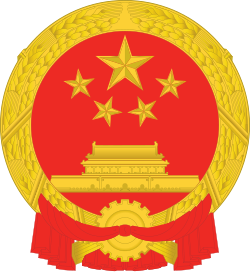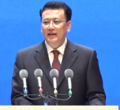 | |
| Legislature | Zhejiang Provincial People's Congress |
|---|---|
| Website | www |
| Communist Party | |
| Party | Zhejiang Provincial Committee of the Chinese Communist Party |
| Secretary | Wang Hao |
| Government | |
| Executive | Provincial People's Government |
| Governor | Liu Jie |
| Executive Vice Governor | Xu Wenguang |
| Congress Chairperson | Wang Hao |
| Provincial CPPCC Chairman | Lian Yimin |
| Commission for Discipline Inspection Secretary | Fu Mingxian |
| Supervisory Director | Fu Mingxian |
| Court President | Li Zhanguo |
| Procurator General | Lin Yiying |
| Military | Zhejiang Military District |
| Commander | Xin Keli |
The politics of Zhejiang is structured in a dual party-government system like all other governing institutions in mainland China.
Contents
- Provincial-level leaders
- CCP Committee Secretaries
- Governors of Zhejiang
- Directors of the Zhejiang Provincial People's Congress
- Chairperson of CPPCC Zhejiang Committee
- 1st
- 2nd
- 3rd
- 4th
- 5th
- 6th
- 7th
- 8th
- 9th
- 10th
- 11th
- 12th
- 13th
- See also
- References
The Governor of Zhejiang is the highest-ranking official in the People's Government of Zhejiang. However, in the province's dual party-government governing system, the Governor has less power than the Zhejiang Chinese Communist Party (CCP) Provincial Committee Secretary, colloquially termed the "Zhejiang CCP Party Chief".






